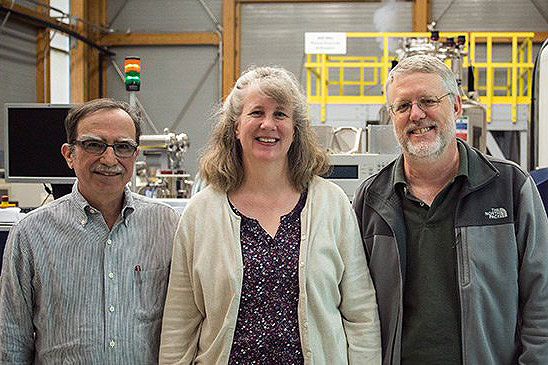
The Florida State University-headquartered National High Magnetic Field Laboratory will be home to a new National Institutes of Health Biomedical Technology Resource Center that will develop unique instrumentation for innovative biomedical work in high magnetic fields to combat diseases like Alzheimer’s and tuberculosis.
To create the center, the National MagLab will receive a $5.8 million grant from the NIH.
“This new grant leverages the exciting capabilities already available at the MagLab, allowing us to offer high magnetic fields as a transformative biomedical technique to our worldwide user community,” said Greg Boebinger, National MagLab director.
The MagLab is already home to several world-record magnets, including the strongest magnet in the world for nuclear magnetic resonance (NMR) — the new 36-tesla series connected hybrid. But researchers need more than high magnetic fields to tackle the world’s most important biomedical questions. The new center is funding the development of cutting-edge tools that will amplify the MagLab’s world-record magnets.
“We’re pleased by the NIH’s investment in research at the MagLab and believe these funds will help propel our scientists’ work in biomedical research forward as they seek to better understand complicated diseases that affect millions of people,” said FSU Vice President for Research Gary K. Ostrander.
The center’s innovative instrumentation will be in the form of probes, complex mini-electronic devices that hold biological samples while they are loaded into a magnet. These new state-of-the art probes will help scientists see the molecular structure and chemistry of proteins that cause diseases.
Two of the new probes, called “magic angle spinning probes,” will be designed for use on the series connected hybrid magnet and for enhancing NMR sensitivity in superconducting magnets with a technique called dynamic nuclear polarization. These unique probes will spin solid biological samples near the speed of sound (up to 50,000 revolutions per second) to isolate signals from specific atoms within the molecules researchers are studying, information needed to understand the molecular basis of diseases.
“Advanced probes like these are a key piece of the nuclear magnetic resonance research puzzle,” said Tim Cross, FSU chemistry professor and director of the MagLab’s NMR/MRI user facility. “These probes will be the most sensitive of their kind, and we expect them to generate quite a stir in the research community.”
Another probe will capitalize on the use of high-temperature superconductors to develop super-sensitive NMR probes for characterizing complex solutions that contain hundreds of molecules, like those from the metabolism of our diets.
More than 40 research groups worldwide are participating in the project. They can expect to take these new probes for a spin as they become available, beginning in 2018. A comprehensive training effort to work with future generations of graduate students, postdoctoral researchers and early career scientists across the biomedical community will also be a key component of the new center.
The new center will connect the MagLab’s nuclear magnetic resonance efforts across two sites and within two user facilities, tapping into the expertise of MagLab researchers at both Florida State University and the University of Florida.
The MagLab’s NMR/MRI technology group, led by William Brey and Peter Gor’kov, will design the instrumentation. Two UF faculty members, Joanna Long and Matthew Merritt will collaborate with Cross to lead the research efforts.



